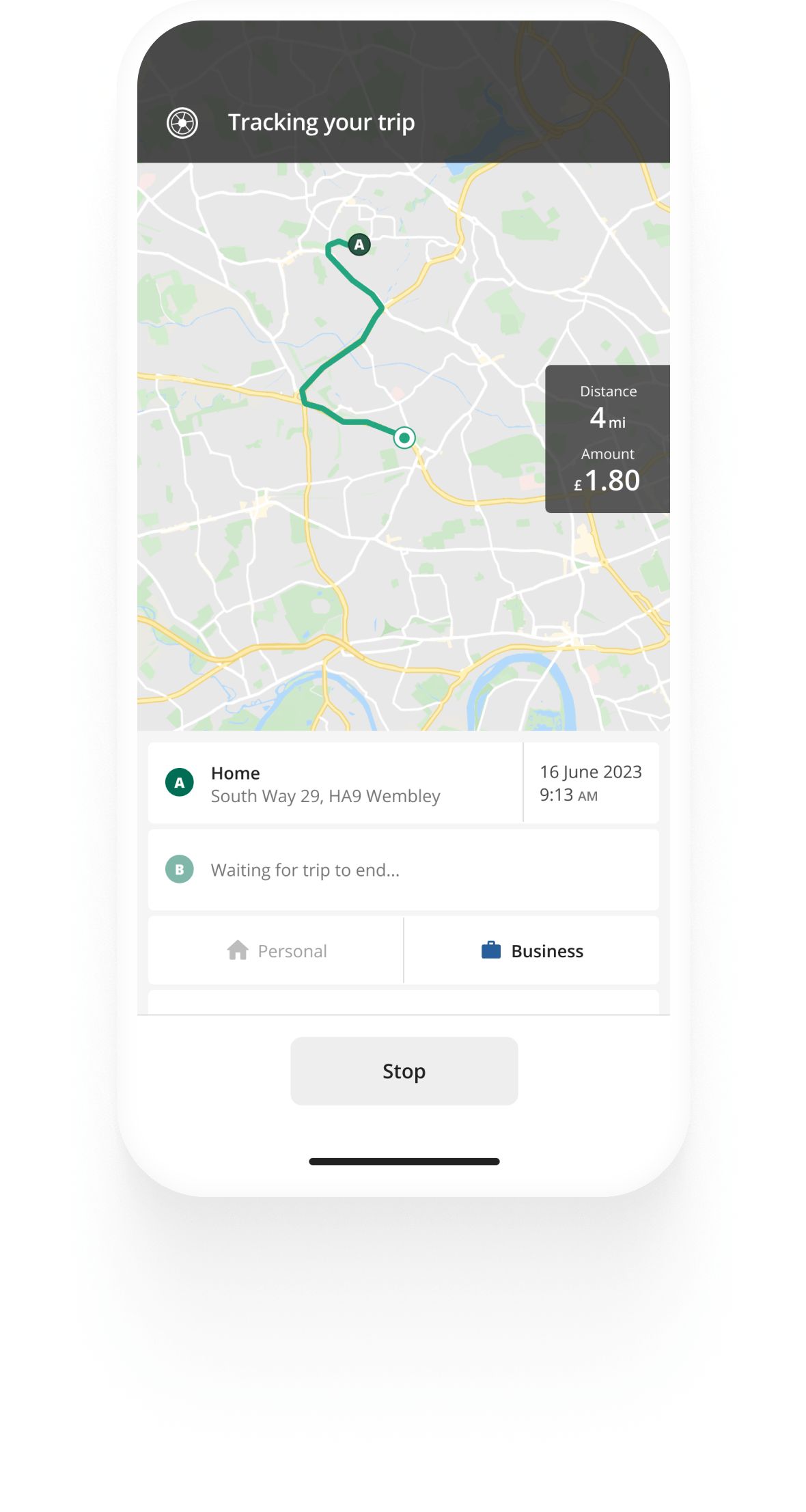Track mileage automatically
Get startedTax deductions
Tax deductions can provide a valuable way for individuals and businesses in the UK to reduce their tax liability. Some of the most common tax deductions include your personal allowance, pension contributions and charitable donations.
It's important to note that there are many tax deductions available in the UK, and the rules and regulations can be complex. It's always a good idea to consult with a qualified accountant or tax professional to ensure you're taking advantage of all the deductions you're entitled to, and that you're complying with all the relevant tax laws and regulations.
Tax deductible expenses
Besides the aforementioned personal allowances, pension contributions and charitable donations, you can also claim deductions for work-related expenses like uniforms, tools and travel expenses that your employer doesn't reimburse you for.
If you're self-employed and you make a loss in a tax year, you can carry the loss forward to offset against future profits. Find out more about self-employed tax deductions in the UK.
One of the most common deductions available is for mileage expenses, which can be particularly important for those who use their vehicles for work purposes.


Mileage tracking made easy
Trusted by millions of drivers
Automate your mileage log Automate your mileage log

Automatic mileage tracking and HMRC-compliant reporting.
Get started for free Get started for freeMileage tax deduction
HMRC has two different rates for mileage expenses - the Approved Mileage Allowance Payment (AMAP) rate and the Mileage Allowance Relief (MAR) rate. The AMAP rate is the amount you can claim tax-free for business journeys in your own vehicle, while the MAR rate is the amount you can claim tax relief on for business journeys in a company vehicle or a vehicle provided by your employer. We have written an in-depth guide on UK mileage, where you can read more about what this might mean for you.
To claim mileage expenses, it is essential to keep accurate records of all business journeys. This includes the date of the journey, the purpose of the journey, the starting and ending locations, and the miles travelled. An automated mileage tracker like Driversnote makes this task a breeze.
To calculate your mileage expenses, you can use the HMRC approved rate, depending on the type of vehicle used and the purpose of the journey.
See the 2025 HMRC mileage rates in our article. They have not changed from the 2024/2025 rates.
Restrictions to mileage tax deductions
It is important to note that there are some restrictions on claiming mileage expenses, particularly if you are using a vehicle that you own personally. For example, you cannot claim mileage expenses for commuting to and from your usual place of work, and you cannot claim expenses for journeys that are purely personal in nature.
You can make it easy to keep an accurate record of your mileage with an automated mileage logbook like the Driversnote app. It can automatically track your trips and make it easy for you to categorise them as personal or work-related.
In conclusion, claiming tax deductions for mileage expenses can be a valuable way to reduce your tax liability in the UK. By keeping accurate records, understanding the different rates and rules, and staying up-to-date with any changes, you can ensure that you are claiming all the deductions you are entitled to, and complying with all the relevant tax laws and regulations.
FAQ

Tired of logging mileage by hand?
Effortless. HMRC-compliant. Liberating.
Related posts
Free mileage log book template
Latest update: 7 May 2025 - 2 min read
Whether you're an employee or a business owner, it's crucial to keep good mileage records in a mileage log book.
HMRC Mileage Guide
Latest update: 2 April 2025 - 5 min read
Welcome to our guide on mileage claims and reimbursement in the UK. This guide will walk you through the rules that apply to your situation.
HMRC advisory fuel rates 2025
Latest update: 5 December 2025 - 5 min read
HMRC has announced the revised advisory fuel rates, effective 1 December 2025. See how they apply to employees and employers.
.svg)

